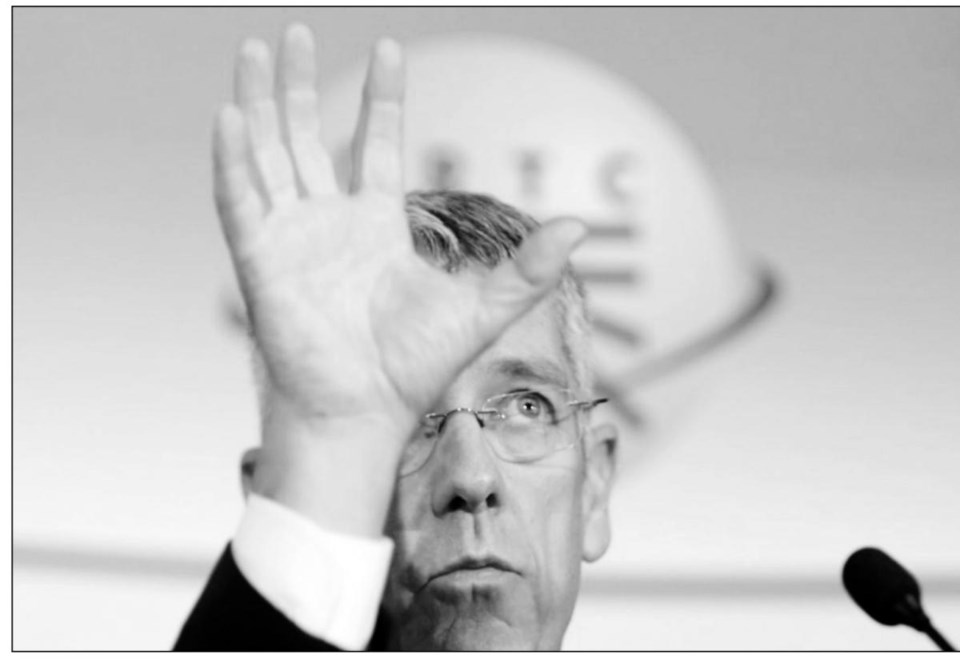BCE Inc. will call on the federal cabinet to intervene after the broadcast regulator gave an unequivocal thumbs down Thursday to its takeover of Astral Media, declaring the $3.4-billion deal was not good for Canadians.
The decision by the CRTC was announced after stock markets closed and marked the first major ruling for newly installed chairman Jean-Pierre Blais.
Not only did Blais, who took over in late June, turn down one of the biggest takeovers ever submitted to the Canadian Radio-television and Telecommunications Commission, he left little doubt about where he stood, or how he would respond should BCE return with a modified but essentially similar proposal.
"This transaction would have resulted in an unprecedented level of concentration in the Canadian marketplace and we had grave concerns that BCE would be able to use its market power in an unfair manner and engage in uncompetitive behaviour," he said.
"Simply put this was not a good deal for Canadians"; it could have restricted choice and raised prices of services, he said.
Bell said late Thursday that it was "shocked" and "appalled" by the decision, adding that it will ask the federal cabinet to "issue direction to CRTC to follow its own regulatory policy." It said the decision was "tainted by behind-the-scenes lobbying" by its rivals and claims the ruling violates the regulator's own policies.
"We met all the CRTC's rules, indeed our acquisition of Astral was based directly on the CRTC's currently in-place Diversity of Voices policy,"said George Cope, president and CEO of Bell Canada and BCE Inc.
"The wide-ranging benefits to Canadians of the transaction are clear, but the CRTC has told consumers that they and the rules in place just don't matter."
Bell claims the deal would have given it control of 33.5 per cent of the English-language TV market, a level it says should have been approved under guidelines set out in the CRTC's Diversity of Voices policy, which governs the level of media concentration in Canada.
But Blais said that had the regulator allowed the deal, BCE would have controlled almost 45 per cent of the English TV viewership and almost 35 per cent of the French. As well, it would have become the largest radio station operator in Canada and would have controlled over half of TV pay and specialty services.
"At the end of the day, BCE demonstrated clearly that the proposed transaction would be good for BCE, but we were not persuaded that it was in the best interest of Canadians," he said.
Asked if he would consider an amended request from BCE, he said he could not stop the media giant from taking a second shot, but added: "I recommend before anybody brings a new application that they carefully read the decision."
A CRTC official said the decision could be challenged at the Federal Court of Appeals, but that the Harper cabinet could not overrule it because it does not entail issuance or renewal of a licence.
Telecom analyst Iain Grant said the CRTC hasn't delivered a ruling of this magnitude since 1992 when it approved competition for long-distance calling. "This is a defining moment for the CRTC," said Grant, managing director of the SeaBoard Group. "They have stared at Canada's largest corporation and one of the largest deals in Canada and said 'No.' "
Blais said the decision reflects his philosophy to "put Canadians back at the centre of the communications system."
BCE already controls 33.7 per cent of the English TV viewership in Canada and is owner of Bell Canada, the CTV television network, numerous specialty stations and the former Chum radio stations, and a national satellite delivery system.
Had it succeeded in acquiring Astral Media, it would have brought 25 channels, including The Movie Network, HBO Canada and French-language Super Ecran, Family Channel and Disney Junior and more than 80 radio stations into the BCE stable
"That convergence, integration and scale may lead to a point at which the size of an entity on a national level becomes so large that it hinders effective and healthy competition," the regulator said.



